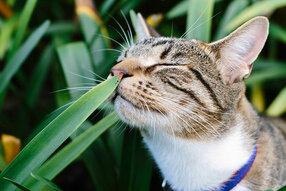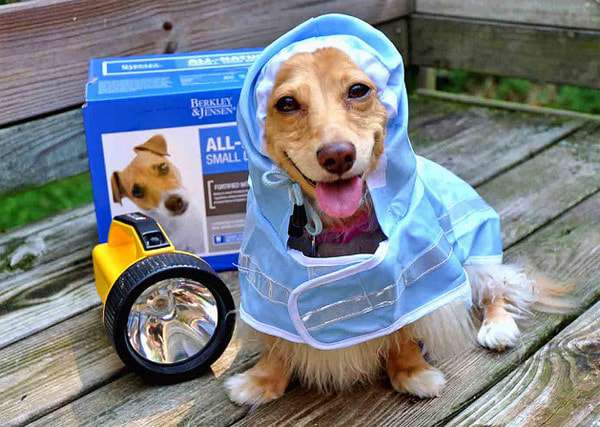
February is a time of year when loved ones express their affection for each other by giving and receiving chocolates and flowers. It is nice to remember our pets on this special day, as well. However, it is NEVER in the best interest of our four-legged friends to give them easy access to chocolates or flowers. As many of you already know, if a pet eats chocolate, there can be serious health consequences. Some of the common side effects include vomiting, diarrhea and even seizures.
Call Your Veterinarian Immediately, Don’t Wait!
If you suspect that your pet has ingested any amount of chocolate, you may want to call your veterinarian to alert them of the situation. Depending on the type of chocolate eaten, you may have a life-threatening situation or you may just have a mess to clean up with no implications. Your vet may ask you to bring your pet into the office immediately so they can empty your pet’s stomach and give medications to help reverse the effects. Milk chocolate often only causes diarrhea and vomiting, but the ingestion of even a small amount of dark chocolate or baking chocolate can, in some cases, cause death. It is better to give your pet a treat that is made especially for dogs or cats, and keep your own goodies away from curious paws and mouths.
A beautiful bouquet of Valentine’s Day flowers also can have serious health consequences for our pets. Curious cats and dogs often can’t resist chewing and eating the leaves and petals of a florist’s creations, which can cause digestive problems, diarrhea in pets, heart problems, kidney failure, liver disease and/or seizures. That’s why it is so important to display your flowers out of your pets’ reach. Certain flowers can be toxic if eaten. If you suspect or can confirm that your pet has eaten plant leaves or flower petals, the identity of the plant or flower is crucial in determining its toxicity. You can either call the ASPCA’S National Animal Poison Control Center at 1-888-426-4435, or Hope Animal Medical Center at 706-546-7879.
Common Valentine’s Presents that Can Cause Diarrhea in Pets!
Common flowers and plants- including some often found in your own backyard-that are especially toxic and can be fatal if ingested include: Oleander, Lilies, Sago Palm nuts and seeds, Castor Bean, Azalea, Rhododendron, Chrysanthemum, Peace Lily, Tulip bulbs, Amaryllis, English Ivy and Autumn Crocus.
Everyone loves to receive chocolates, flowers or plants on Valentine’s Day. By making sure they are kept away from nosy canines or hungry felines, you can enjoy them safely with no fears of accidentally poisoning your pets.
Remember to make the day special for pets by giving lots of love, extra attention and a few safe pet treats.




